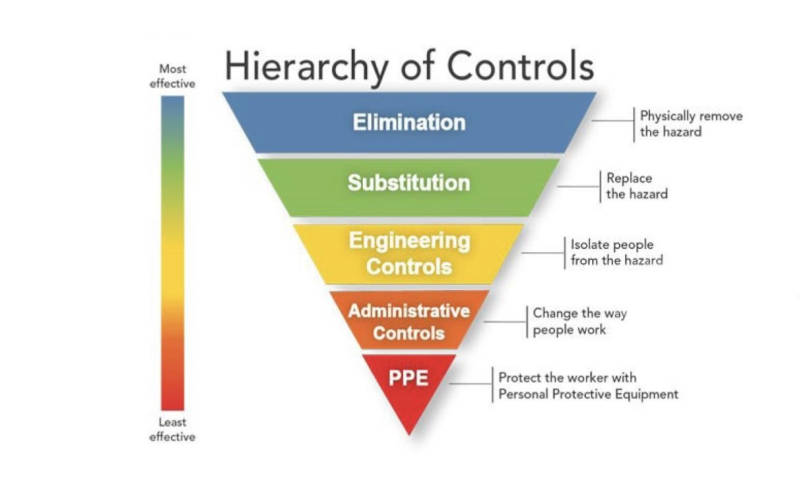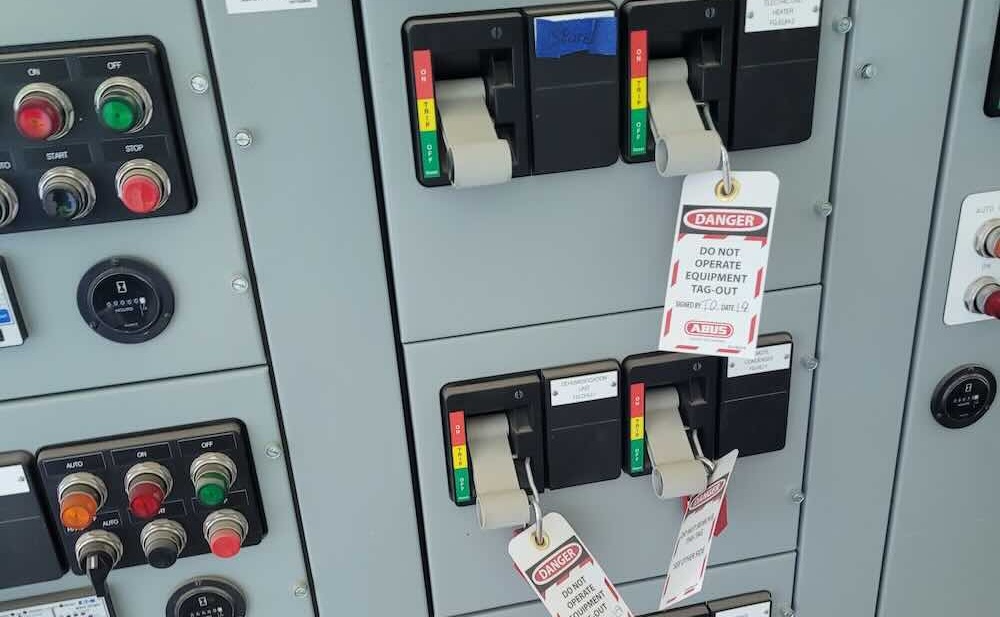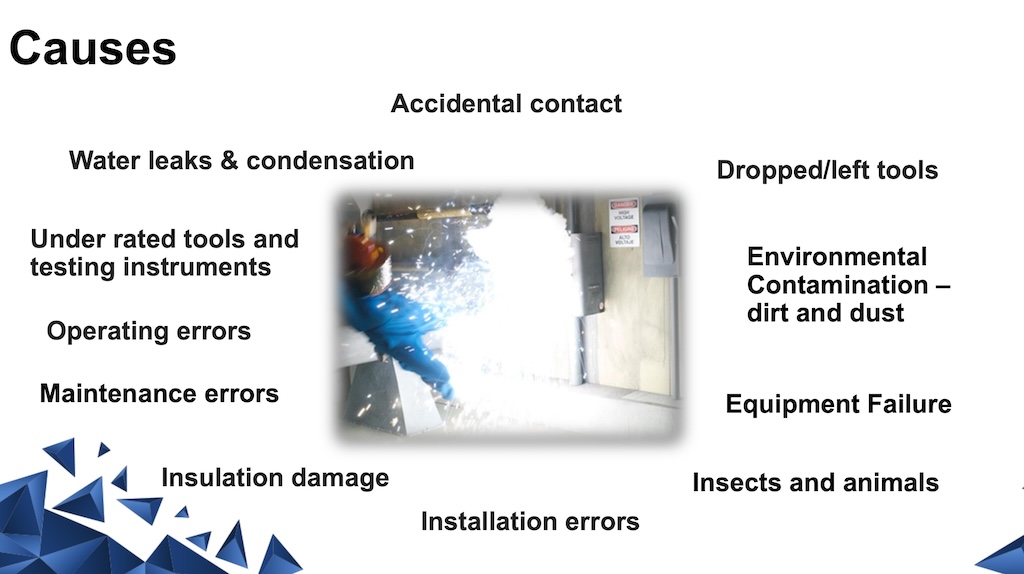Where to learn what you need to know

In November, Plant Engineering hosted a webcast presentation by a highly qualified subject expert, Terry Bilke, a senior NERC compliance consultant with the Eugene, OH-based Health & Safety Institute.
Bilke’s electrical experience began as a nuclear qualified electrician on the aircraft carrier USS Dwight D. Eisenhower. Following the Navy, Terry was an electrical trainer and NERC-certified power system operator with Wisconsin Electric Power Company for 20 years. After that, Terry spent nearly 20 years with the Midcontinent Independent System Operator (MISO) in grid operations support and regulatory compliance. During his time with MISO, Terry was also an Adjunct Professor in Bismack State’s Electrical Transmission Systems Technology program.
As readers know, according to OSHA, many workers are unaware of the potential electrical hazards present in their work environment, which makes them more susceptible to injury or death. The most frequent causes of electrical injuries include contact with power lines, lack of ground-fault protection, path to ground missing or discontinuous, equipment not used in manner prescribed, and improper use of extension and flexible cords.
During the webcast, Bilke reviewed how these hazards can be avoided, including a review of relevant OSHA (29 CFR 1910), NFPA 70E and other relevant standards. He also shared tips on how to assess your company’s electrical safety program which can lead to solutions that reduce the risk of injury associated with electrical work.
At the conclusion of the webcast, Bilke took questions from the sizeable attending audience. Questions not gotten to during the event were afterwards provided by Bilke and are shared below.
Question: Does a licensed electrician have to go through separate training to be deemed a qualified electrical worker (QEW)?
Terry Bilke: It depends on the work environment, job responsibilities and associated risks. The key is assessing the risk against and the employee’s skills and knowledge.
Q: I’ve seen OSHA 10 and 30 classes online, are you aware of any QEW certification classes online?
TB: There are good foundational classes. There is not a “one size fits all” program for QEW. As noted before, training needs to address the risks associated with the job.
Q: Do unqualified employees need training, or do they just need to be made aware of the hazards?
TB: Training is required for employees that even though aren’t authorized to work on potentially energized equipment, they face risk because they work on or near electrical hazards. This is an OSHA requirement.
Q: Do electricians have to show proficiency on all tasks they will perform? Or does the qualified electrical worker training take care of the basics and then they go into their job -specific training and qualification program?
TB: Unless there is a tailored hands-on component, most QEW-related training provides the core knowledge (different from skill) needed for the job.
Q: Do we have authority to train qualified electrical workers?
TB: Yes, in fact there’s an expectation that you ensure the training is done.
Q: How frequently should arc flash training be conducted?
TB: The general requirement is every 3 years. This is an NFPA-70E requirement.
Q: How can managers spot employees that may need more training?
TB: Here are a few tips. A manager should develop a habit of doing a “safety scan” when entering a job site. Are people wearing the proper PPE and following safety practices? Do people’s behavior change when you arrive? Is the work area clean and uncluttered (this means different things in different work environments)? Does near-miss and injury data point to problems?
Q: How do I approach upper management about lower management putting unqualified people in harm’s way?
TB: You want to provide facts and information, pointing to the risks (human impact and financial). Something like the safety assessment in this training can give you a “worry factor.” OSHA and industry injury data for like companies can be helpful.
Q: Do electricians have to show proficiency on all tasks they will perform? Or does the qualified electrical worker training take care of the basics and then they go into their job -specific training and qualification program?
TB: Commercially-available QEW training is intended to provide the foundation. The employer defines what training is needed for the electrician to be qualified. The employee needs to be proficient in all work they perform. A qualification program expands the number of tasks they can do.
Q: Do you need to have a licensed professional to do an arc flash study?
TB: NFPA Arc flash studies should only be performed by experienced and qualified electrical engineers familiar with power quality, short and circuit studies
Q: When I took OSHA 30, they said no repaired extension cords. Has this changed?
TB: While probably not a best practice, OSHA does allow repair of extension cords. 1926.404(b)(1)(iii)(C) says “Each cord set, attachment cap, plug and receptacle of cord sets, and any equipment connected by cord and plug, except cord sets and receptacles which are fixed and not exposed to damage, shall be visually inspected before each day’s use for external defects, such as deformed or missing pins or insulation damage, and for indications of possible internal damage. Equipment found damaged or defective shall not be used until repaired.” There is more in the standard on how this is to be done.
Q: What training is required to differentiate electrically qualified vs medium voltage qualified?
TB: The employee needs to be familiar with the tasks and equipment that are used with voltages between 1kV and 35kV. For more information see OSHA 1910.269 – Electric power generation, transmission, and distribution.
Q: Is it ever acceptable that an electrician (or crew) allows a qualified co-worker, like a foreman, to LO/TO a circuit they are working on, without using a group lock box?
TB: Yes. Under the group lockout/tagout process, one authorized employee is designated with the primary responsibility for a specific number of other workers.
Q: What is needed in order to do live work at the workplace?
TB: If you do a search of NFPA 70E on the phrase “energized electrical work permit” you’ll find dozens of requirements.



